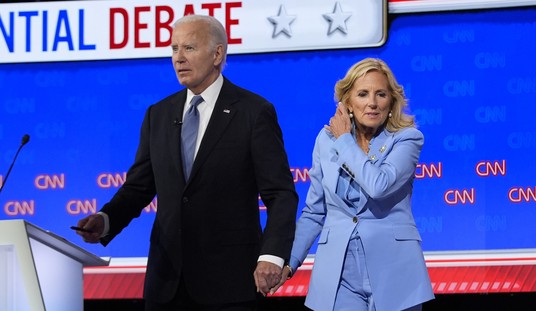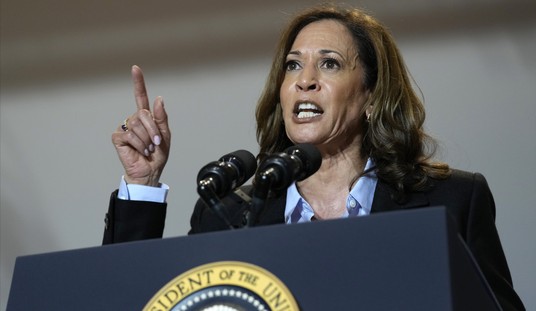Virginia Federal District Court Judge Henry E. Hudson ruled today that the individual mandate in ObamaCare and all the provisions in that Act which relate to it are unconstitutional. The judge’s ruling is posted here, but here are two of the key excerpts:
Salutatory goals and creative drafting have never been sufficient to offset an absence of enumerated powers.[p.21]
[…]
It is clear from the text of Section 1501 that the underlying regulatory scheme was conceived as an exercise of Commerce Clause powers. This is supported by specific factual findings purporting to demonstrate the effect of the health care scheme on interstate commerce. In order for the noncompliance penalty component to survive constitutional challenge, it must serve to effectuate a valid exercise of an enumerated power-here the Commerce Clause. [at p. 36]
In doing so, Judge Hudson rejected the administration’s claims that Congress has the authority to regulate decisions not to buy insurance coverage, and that the mandate which it had originally asserted was a penalty not a tax,was indeed, a tax.
A thorough survey of pertinent constitutional case law has yielded no reported decisions from any federal appellate courts extending the Commerce Clause or General Welfare Clause to encompass regulation of a person’s decision not to purchase a product, notwithstanding its effect on interstate commerce or role in a global regulatory scheme.
The unchecked expansion of congressional power to the limits suggested by the Minimum Essential Coverage Provision would invite unbridled exercise of federal police powers. At its core, this dispute is not simply about regulating the business of insurance-or crafting a scheme of universal health insurance coverage-it’s about an individual’s right to choose to participate. Article I, Section 8 of the Constitution confers upon Congress only discrete enumerated governmental powers. The powers not delegated to the United States by the Constitution, nor prohibited by it to the States, are reserved to the states respectively, or to the people. See U.S. Canst. amend. X; Printz v. United States, 521 U.S. 898, 919, 117 S. Ct. 2365, 2376-77 (1997). [at p. 37, emphasis supplied]
On careful review, this Court must conclude that Section 1501 of the Patient Protection and Affordable Care Act-specifically the Minimum Essential Coverage Provision-exceeds the constitutional boundaries of congressional power. [at p. 38]
The latter defense was, as the Court noted, a clear after the fact Hail Mary play the administration tried when it was clear that the Commerce Clause might not be sufficient to cover this legislative overreach.
Because the case was decided on motions for summary judgment there was no testimony, no expert witnesses, and no detailed discussion of more than a few of the 400 provisions in the act, most of which relate to other matters. Further, the haste with which it was enacted made it impossible for the Court to determine on the record how much of the remaining law was dependent on Section 1501. Therefore, relying on sound constitutional law, the judge declined to issue an injunction of the act because the mandate and the provisions specifically related to it do not even go into effect until 2014.
Here’s more from Hudson’s decision today:
[T]he bill embraces far more than health care reform. It is laden with provisions and riders patently extraneous to health care-over 400 in all…. [at p. 38]
The final element of the analysis is difficult to apply in this case given the haste with which the final version of the 2,700 page bill was rushed to the floor for a Christmas Eve vote. It would be virtually impossible within the present record to determine whether Congress would have passed this bill, encompassing a wide variety of topics related and unrelated to heath care, without Section 1501. [at p. 39]
The attorney general of Virginia, Ken Cuccinelli, has indicated he believes the case will go to the Supreme Court. “I am gratified we prevailed. This won’t be the final round, as this will ultimately be decided by the Supreme Court, but today is a critical milestone in the protection of the Constitution,” said Cuccinelli.
I can’t argue with that assessment.
This afternoon Cuccinelli held a press conference to explain his view of the case and what the next steps would be. He said this litigation was a “long process”, that as the case was wending its way to the Supreme Court he was “happy to go with a win in round one.” He reminded those present of the many commentators who said Virginia’s suit was “frivolous” and meritless. He anticipates the administration will seek an appeal in the Fourth Circuit and plans to seek an agreement to expedite that process to avoid the costs the Commonwealth would be forced to incur as the appeal proceeds.
As for the severability issue, the Attorney General said: The administration said in court it would abide by the Court’s declaratory outcome. In his opinion [p. 40] the Judge indicated which provisions were dependent on Section 1501’s mandate and the Court had no need to enjoin the enforcement of those provisions because it is anticipated the government would keep its word and abide by that ruling.
Rasmussen reports that ObamaCare has gotten even more unpopular as time wears on:
Time doesn’t seem to be winning the new national health care law any more friends. Most voters have favored repeal of the law every week since it was passed and support for repeal has now inched up to its highest level since mid-September. Many Americans remain concerned that the law will force them to change their health insurance coverage.
The latest Rasmussen Reports national telephone survey shows that 60% of Likely U.S. Voters at least somewhat favor repeal of the health care law while 34% are opposed. As has been the case since the law was first passed, those who favor repeal feel more passionately than those who want to keep the law–46% Strongly Favor repeal while just 23% who are Strongly Opposed.
Twenty states are already challenging the law. In Florida, Judge Vinson has already expressed his skepticism at the administration’s arguments. Cuccinelli indicated with the electoral changes in the various states, he anticipated one half of the states would be challenging ObamaCare in court. He couldn’t think of another case with such significant state opposition and neither can I. In the Florida case, Judge Vinson has refused to dismiss the case.
This was a signal victory for constitutional government with the promise of more to come.








Join the conversation as a VIP Member